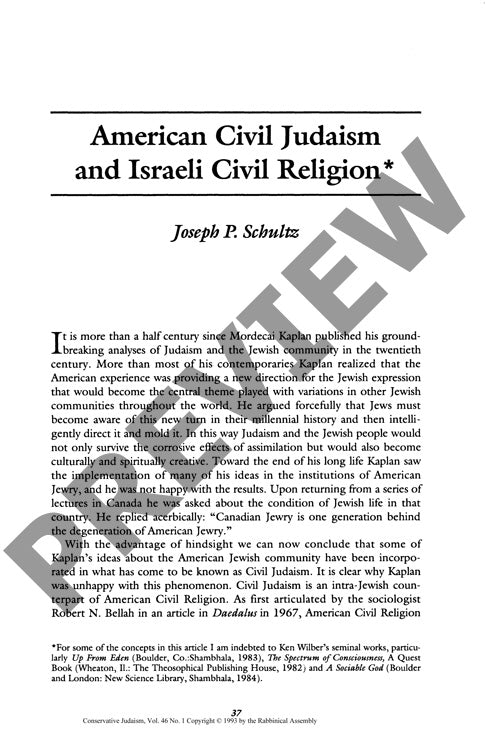American Civil Judaism and Israeli Civil
Couldn't load pickup availability
Modern Jewish identity has evolved into two distinct but parallel civil religious systems in America and Israel, each adapting Mordecai Kaplan's vision of Jewish civilization to unique national contexts. Through comparative sociological analysis based on Robert Bellah's framework of civil religion, clear patterns emerge in how these communities maintain cohesion and express values. American Civil Judaism manifests through ten core beliefs, including social justice imperatives, emphasis on unity, philanthropic expressions of loyalty, and persistent anxiety about survival - particularly through Holocaust memory and intermarriage concerns. Israeli Civil Religion exhibits five parallel elements: Jewish unity, Hebrew cultural dominance, selective tradition, democratic values, and security consciousness. Using sociological concepts of translation, transformation, and transcription reveals how institutional structures in both communities reflect deeper spiritual elements. While these civil religious forms successfully integrate diverse Jewish populations, their democratic and pluralistic nature creates inherent limitations, often resulting in shallow tribalism and political maneuvering. These manifestations represent necessary but ultimately insufficient responses to modern Judaism's transformative challenges - emancipation, the Holocaust, and Israeli statehood - lacking the capacity to generate authentic spiritual renewal for future generations.

More Information
-
Physical Description
-
Publication Information
Published 1993
ISBN
-
Publication Credits
Joseph Schultz

